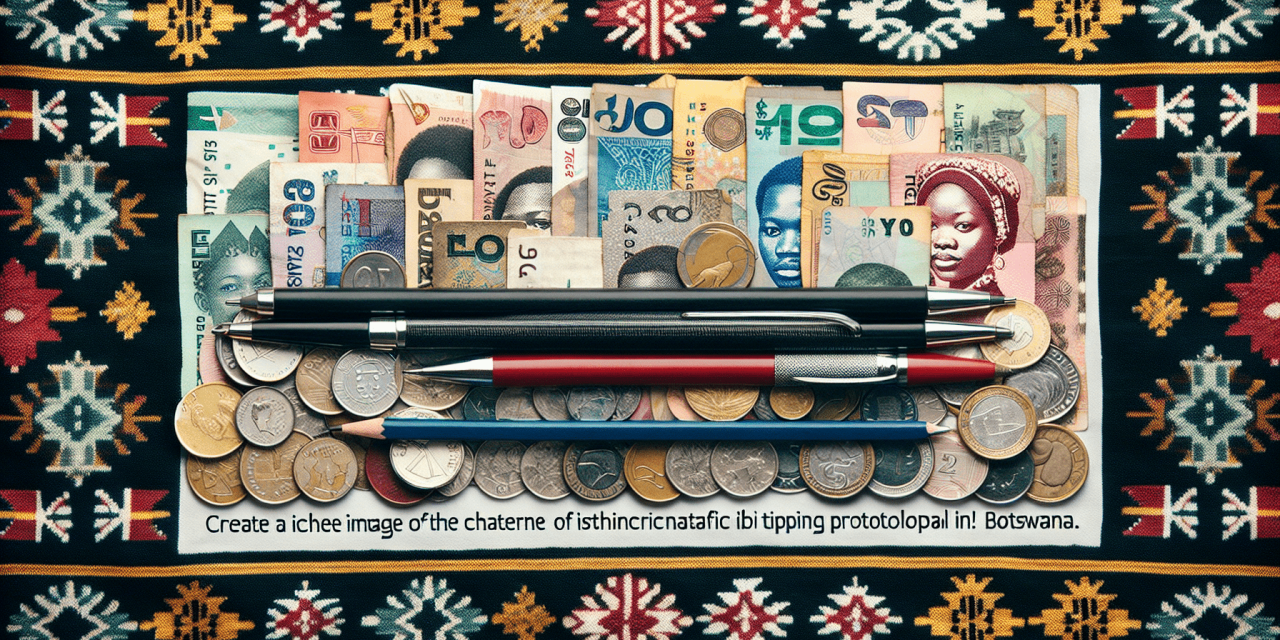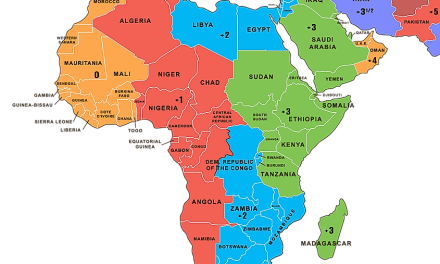So you’ve booked your flight to Botswana, packed your bags, and are ready to embark on your African adventure. But before you touch down in this vibrant country, it’s essential to brush up on the local customs and etiquette, and that includes knowing the ins and outs of tipping. Tipping can be a tricky subject no matter where you are in the world, but in Botswana, it’s particularly important to understand the expectations and norms to ensure a smooth and respectful experience. In this article, we’ll explore the tipping etiquette in Botswana, from who to tip to how much is appropriate, so you can navigate this aspect of your trip with ease and confidence.
Types of service
Restaurants
When dining in restaurants in Botswana, it is customary to leave a tip as a gesture of appreciation for the service provided. Tipping is not mandatory, but it is highly encouraged, especially in more upscale establishments.
Hotels
In hotels, there are various staff members who may provide services during your stay. It is customary to tip certain individuals to show your gratitude for their assistance. However, it is important to note that tipping practices may vary depending on the establishment and the level of service received.
Taxis
When using taxis in Botswana, it is customary to tip the driver if you were satisfied with the service provided. Tipping taxi drivers is not mandatory, but it is considered a polite gesture and a way to show appreciation for a safe and efficient ride.
Tipping customs in restaurants
General tipping guidelines
In restaurants, it is customary to leave a tip of around 10-15% of the total bill. However, this amount is discretionary and can vary based on individual preferences or the level of service received. If the service was exceptional, you may choose to leave a higher tip to acknowledge the efforts of the staff.
Percentage of tip
As mentioned earlier, a tip of around 10-15% is generally considered appropriate in restaurants. However, it is important to consider the overall dining experience and the quality of service provided before determining the exact percentage. If you believe the service was exceptional, you may choose to tip more than the suggested range.
Discretionary nature of tipping
It is important to note that tipping in restaurants in Botswana is discretionary. While it is a common practice to leave a tip, it is not mandatory. If you feel that the service was below par or if you had a negative experience, you have the discretion to withhold a tip. However, it is advisable to communicate your concerns with the management if the service was severely lacking.
Tipping customs in hotels
Porters
When staying in a hotel, it is customary to tip porters who assist with carrying your luggage to and from your room. The recommended tip is around 10-20 Botswana Pula per bag, depending on the size and weight. This gesture of appreciation acknowledges their efforts and the convenience they provide.
Housekeeping
It is customary to leave a tip for housekeeping staff in hotels. The amount can vary, but a general guideline is to leave around 20-50 Botswana Pula per day, depending on the level of service and the size of the accommodation. Leaving a tip in an envelope with a note of appreciation is a thoughtful way to express your gratitude.
Tour guides
If you participate in guided tours during your stay, it is customary to tip the tour guide at the end of the excursion. The recommended amount can vary depending on the duration and quality of the tour. A guideline is to tip around 10-20% of the total cost of the tour, or a minimum of 50 Botswana Pula per person.
Tipping customs in taxis
Standard tipping practice
Tipping taxi drivers in Botswana is not mandatory, but it is a customary practice. A standard tip is around 10% of the total fare if you were satisfied with the service. However, it is important to note that there is no strict rule regarding tipping in taxis, and the decision to leave a tip is ultimately up to your discretion.
Rounding up the fare
An alternative to percentage-based tipping in taxis is to round up the fare to the nearest whole number. For example, if the fare is 37 Botswana Pula, you can round it up to 40 Pula as a gesture of appreciation. This method is convenient and ensures that the driver receives a tip without the need for calculation.
Tip based on service quality
If you received exceptional service from a taxi driver, you may choose to tip more than the standard amount. This can be a way to recognize their efforts and show appreciation for going above and beyond. Similarly, if the service was below par, you have the option to withhold a tip or leave a smaller amount to reflect your dissatisfaction.
Local customs and expectations
Respecting cultural norms
When it comes to tipping in Botswana, it is important to respect the local customs and expectations. While tipping is generally appreciated, it is not always expected in all situations. Familiarize yourself with the local customs and observe how locals behave to get a better understanding of the tipping practices in Botswana.
Considering economic factors
When determining the appropriate amount to tip, it is important to consider the economic factors of the country. Botswana is a developing nation, and while tipping is appreciated, it is important to be mindful of your budget and the local economic context. Tipping should be seen as a way to acknowledge good service rather than an obligation.
Understanding local expectations
It is beneficial to understand the local expectations regarding tipping in Botswana. By observing and asking locals or hotel staff for guidance, you can gain insight into the appropriate tipping practices for different situations. Being respectful and considerate of these local expectations will ensure a positive experience for both you and the service providers.
Currency and denominations
Accepted currency
The official currency of Botswana is the Botswana Pula (BWP). It is advisable to have the local currency on hand for tipping purposes, as not all establishments may accept foreign currency or credit cards. Exchange currency at authorized exchange centers or withdraw cash from ATMs to ensure you have the appropriate currency for tipping.
Availability of small denomination notes
It is worth noting that not all establishments may have sufficient change for larger denomination notes. To avoid potential inconveniences, it is advisable to have smaller denomination notes on hand for tipping. This ensures that you can provide the appropriate amount without relying on establishments to provide change.
Tips in US dollars or local currency
While tipping in Botswana is generally conducted in the local currency, some establishments may accept tips in US dollars. However, it is advisable to use the local currency for tipping whenever possible, as it is a more appropriate way to support the local economy. Additionally, using the local currency reduces the risk of confusion or exchange rate discrepancies.
Tipping in safari camps
All-inclusive nature of safari camps
In safari camps in Botswana, it is important to note that gratuities are often included in the package price. The all-inclusive nature of these camps means that tipping may not be necessary or expected. However, it is always appreciated to show your gratitude for exceptional service by leaving a tip for staff members who go above and beyond.
Gratuities included in package
When booking a safari camp, it is advisable to inquire about the inclusion of gratuities in the package. Some camps may have a suggested gratuity amount per guest per day, which is distributed among the staff. Understanding the camp’s policy on gratuities ensures that you can appropriately acknowledge the hard work and dedication of the staff.
Extra tipping for exceptional service
While gratuities may be included in the package, it is always a kind gesture to leave an additional tip for staff members who provide exceptional service. This can be in the form of a personal note of appreciation or a cash tip for specific individuals. Recognizing and rewarding outstanding service is a way to show your appreciation and leave a positive impression.
Etiquette for refusing tips
Instances where tipping may be refused
In some cases, tipping may be refused. This can occur when the service provided is deemed to be part of the individual’s regular duties or when the establishment has a policy against accepting tips. It is important to respect the individual’s decision and not insist on leaving a tip if it is against their wishes or the establishment’s guidelines.
Appropriate way to decline a tip
If you encounter a situation where an individual refuses a tip, it is important to respect their decision. Simply thank them graciously for their service and acknowledge their professionalism. It is always advisable to respect local customs and the preferences of the individuals you interact with.
Expressing gratitude without tipping
In situations where tipping may be refused or not applicable, there are alternative ways to express your gratitude and appreciation. A sincere thank you, a handwritten note, or a positive review can go a long way in acknowledging the efforts of the individuals who provided service. Showcasing your appreciation without tipping is a thoughtful way to leave a lasting impression.
Additional considerations
Language barriers
In Botswana, English is widely spoken, but there may still be instances where language barriers exist. When tipping, it is important to ensure clear communication to avoid any confusion. If needed, use simple gestures or consult hotel staff for assistance in conveying your gratitude to the service provider.
Tipping during group activities
When participating in group activities such as guided tours or safari excursions, it is important to consider tipping as a collective effort. Discuss tipping practices with the group and come to a consensus on the appropriate amount to leave for the service provider. This ensures fairness and avoids any misunderstandings within the group.
Tipping for special services
In certain situations where you receive specialized services, such as spa treatments or personal tours, it is customary to leave a tip to show your appreciation. The amount can vary based on the service and level of satisfaction. Considering the effort and expertise provided by the service provider, leaving a tip is a meaningful way to acknowledge their dedication.
Conclusion
Importance of respecting local customs
When traveling to Botswana, it is crucial to respect the local customs and tipping practices. Tipping is a way to show appreciation for the services provided and acknowledge the efforts of the individuals who make your experience memorable. By respecting the local customs, you contribute to a positive cultural exchange and create a harmonious atmosphere.
Recognizing and rewarding exceptional service
Tipping is not only about fulfilling an obligation but also about recognizing and rewarding exceptional service. When you encounter outstanding service during your stay in Botswana, it is important to express your gratitude through tipping. Going above and beyond the expected level of service deserves acknowledgment and can motivate service providers to continue delivering excellence.
Flexibility in tipping practices
While there are general guidelines for tipping in Botswana, it is important to remain flexible in your tipping practices. Each situation may call for different considerations, and it is crucial to adapt accordingly. By being open-minded and considerate, you can navigate the tipping customs in Botswana with ease and ensure a positive experience for all parties involved.












